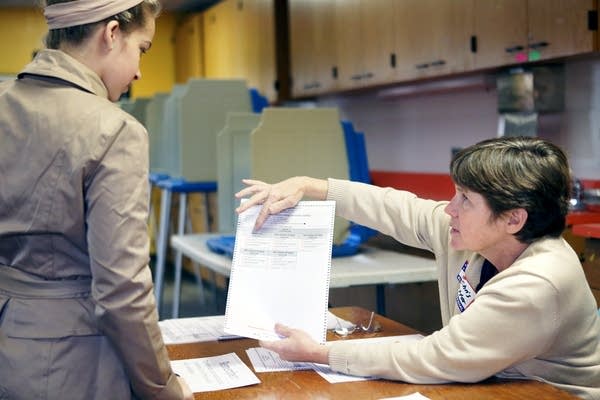Ranked-choice opponents push St. Paul to vote on voting, again

Election judge Chris Soutter explains ranked-choice voting to first-time voter Dalia Selman, 18, at Baker Recreation Center in St. Paul in November 2013.
Jeffrey Thompson | MPR News file
Go Deeper.
Create an account or log in to save stories.
Like this?
Thanks for liking this story! We have added it to a list of your favorite stories.


